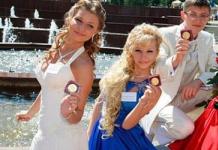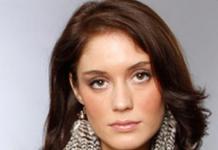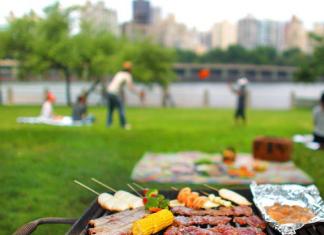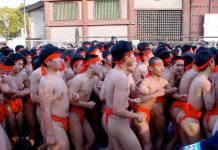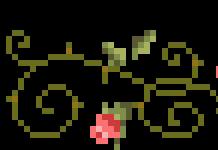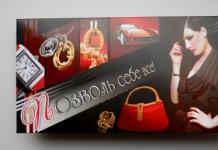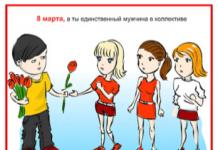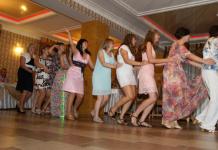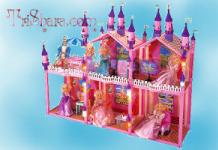In the first volume of the novel. Young business man striving to make a career. Leo Tolstoy's characters were often copied from real people. The prototype of Boris Drubetskoy was a certain M.D. Polivanov.
"War and Peace"
The beginning of the novel falls on 1805, and at this time Boris Drubetskoy is twenty years old, like. Drubetskoy is a handsome young man of noble origin from an impoverished family, the only son of Princess Drubetskoy. Boris is tall, slender and blond, the hero has fine and regular facial features and fair skin.
The hero is an officer and has risen to the position of adjutant, wears a dandy uniform and pays a lot of attention to his appearance, not missing the moment to look in the mirror. Fashion means a lot to Boris. The hero strives for all the details of his appearance, including his hair, spurs and tie, to be "in trend" and look flawless and elegant.
Boris is a careerist and strives to make a good impression in society. Demonstrates refined manners and conducts conversations about the entertainment that the high society of St. Petersburg indulges in, knows French well. The hero has a strong character and a sharp mind, Boris knows how to seem sweet and friendly.
The hero is pleasant to talk to, unhurried and calm. Boris knows how to please those around him and win them over. People fascinated by the hero tend to make exceptions for him. Like, for example, Prince Nikolai Andreevich, who was not in the habit of accepting single young people, but made an exception for Boris.
 Leo Tolstoy writes "War and Peace"
Leo Tolstoy writes "War and Peace" At the same time, when it comes to the financial situation of the family, the hero shows pride. Boris considers it beneath his own dignity to accept help, and even more so to ask.
Despite outward friendliness and charming manners, Boris is by nature a restrained and calculating person. The poor hero seeks to make a career and improve his financial situation. To do this, Boris uses his own ability to make a favorable impression on people. The hero realized early that the ability to please his superiors, and not the efforts in the service, courage and other qualities useful in work, would help in moving up the career ladder.
Boris easily makes many new useful acquaintances in the circle of people of higher rank and status. To get out of poverty, the hero, by calculation and only for the sake of money, marries Julie Karagina, for whom a rich dowry was given, including estates and forests.
 Boris Drubetskoy (still from the TV series "War and Peace")
Boris Drubetskoy (still from the TV series "War and Peace") Determination and diplomatic qualities allowed the hero to build a brilliant career from scratch. The hero is stubborn, accustomed to achieving his goals at all costs, does not deviate from his plans and does not waste efforts.
In order to impress the wealthy of the noble circle, you need to look the part. The hero has to spend his last money to dress better than others and not seem like an unsecured person.

Boris readily refuses momentary pleasures and invests first of all in making himself worthy in the eyes of others. The hero cannot afford to drive around in a bad carriage or catch the eye of people in a tattered uniform.
Boris strives primarily for social success and pays little attention to "spiritual" issues. The hero has his own opinion, but Boris often keeps it to himself and demonstrates the meekness of character in order to avoid conflict and not lose the sympathy of other people.

The series was filmed in Latvia, in the famous Rundale Palace, which was built by the Italian Bartolomeo Rastrelli. This is the same architect who created the Winter Palace in St. Petersburg. The VVS film crew had to come to St. Petersburg to shoot individual scenes. The shooting took place in the Yusupovs' palace on the Moika, in the Assumption Cathedral and on Palace Square, as well as in Gatchina Park and Tsarskoye Selo.

The BBC TV channel has already broadcast a series based on War and Peace earlier, in 1972-1973. Filming lasted three years, from 1969 to 1972, work on the film was carried out in Serbia and the UK. A total of twenty 45-minute episodes were filmed. The role of Boris Drubetskoy was played by actor Neil Stacy.
Quotes
“Despite the fact that Boris came with the intention of talking about his love and therefore intended to be gentle, he irritably began to talk about female inconstancy: how women can easily move from sadness to joy and that their mood depends only on who cares for them. "
"We are very poor, but I, at least, speak for myself: precisely because your father is rich, I do not consider myself to be his relative, and neither I nor my mother will ever ask for anything and will not accept anything from him."
"We are here in Moscow more busy with dinners and gossip than politics."
Boris Drubetskoy - along with Berg presents in the epic novel L.N. Tolstoy's "War and Peace" the image of a "business man". However, his value system differs significantly from Berg's views. For Berg, money is in the first place, for Drubetskoy - a career. Boris Drubetskoy cares too much about his positive image, in a secular society it was impossible to hear talk from him about money, about his own profit, because it was not accepted there. Boris is more cautious than Berg, and this quality makes an unpleasant impression. Drubetskoy tries to appear better than he really is, which means that he soberly evaluates himself, knows how far he is from the image of a true nobleman, always guided by the principles of honor, duty and conscience.
Our experts can check your essay against the USE criteria
Experts of the site Kritika24.ru
Teachers of leading schools and acting experts of the Ministry of Education of the Russian Federation.
However, Drubetskoy does not seek to get closer to the ideal, he just needs to hide his shortcomings.
Whenever possible, Boris tries to show himself more significant than he is. So, having heard the conversation between Rostopchin and the commander-in-chief, Drubetskoy came to the conclusion that it is very honorable to be entered into the house of the old prince Bolkonsky. Wasting no time, he asked to be introduced to the prince. Moreover, Drubetskoy even managed to ingratiate himself with Bolkonsky. Everywhere Boris is looking for useful information that can be used profitably for his own purposes. One of the sources of information for the hero are the nobles' conversations. So, when in June 1812 Drubetskoy sees the Minister of Police Balashov at the ball, he has the idea that the latter has an important message. As if by chance our hero turns out to be not far from the tsar just when Balashov is giving a report. So “Boris was the first to know about the crossing of the Niemen by the French troops and, thanks to this, had the opportunity to show some important persons that much, hidden from others, happens to him, and through this he had the opportunity to rise higher in the opinion of these persons”.
For Drubetskoy, money plays a secondary role. He believes that social status and rank are valued above money. Although, most likely, he does not exclude that career and money are interconnected, and the latter are a consequence of the former. For the character, people are only a means to the realization of his goal. There is no gratitude in him, no appreciation, no desire to help his neighbor. So, the Countess of Rostova helped Boris and his mother with money, but after the Rostovs' affairs were upset, and the Drubetskoys, on the contrary, got rich, they did not think to thank the friends who had made so many for them. Moreover, they not only did not lend a helping hand, but also did not return the debt to Countess Rostova, equal to two thousand, which could help them.
The hero is looking for profit in love. In building his happy future, he assigns an essential role to the choice of a rich bride. Tender feelings connected him with Natasha Rostova, but she did not fully meet his needs. Julie Karagin became a much more profitable party for Boris. Knowing how to behave in order to show himself in the best light and earn the girl's sympathy, the hero uses all the techniques, and outwardly his relationship with the bride looks very romantic.
Drubetskoy is far from the people, he is unfamiliar with patriotism. For him, only his own well-being is important. People like Drubetskoy are dangerous. And their danger is that they may one day occupy a responsible post in which they will pursue only their own interests. Giving a characterization to his hero, the author wants to convince us that only nobles who have comprehended the spirit of the people, who cannot imagine their happiness without the peace and prosperity of their country, are real patriots.
One of the central images of the novel "War and Peace" is the impoverished prince Boris Drubetskoy. The prototypes for it were A. M. Kuzminsky and M. D. Polivanov. In this article, we will look at the character created by the author and all the changes that occur to him as the action develops. Before us will appear first a young man, then a young man - Boris Drubetskoy. Characterization ("War and Peace") of this hero is the topic of the article.
Drubetskoy family
This impoverished noble family consists of two members. Mother, whose name is Anna Mikhailovna, and son Boris. An elderly lady has not appeared in the world for a long time and has lost her connection. She maintains only close relations with the Rostov family. They are both distant relatives and friends. She is also distantly related to Prince Bezukhov. Her son Boris Drubetskoy, who is twenty years old at the beginning of the novel, is similar in character to his mother. Already at this age he is calculating, practical and purposeful.
The appearance of Prince Boris
Boris Drubetskoy is handsome and calm. He is tall and slender. He has blond hair and regular features. His hands are graceful, white, with thin fingers.
Despite the poverty, the mother tries her best to dress him neatly, elegantly and fashionably so that her son can enter the very best houses in both capitals.
Personal traits of Boris
He is an intelligent, sweet and firm person. Boris Drubetskoy knows how to control himself and is always calm. Often a pleasant smile plays on his face. The tone he uses is usually friendly and slightly mocking. He is poor, but proud, and when his mother is struggling to get at least a small share of the inheritance of the old Bezukhov, Boris Drubetskoy is, as it were, in a detached position, although he is the godson of the old count.

He does not consider himself to be his relative, although there are very distant ties, and does not want to receive anything from him. The young man is very resourceful. This is evidenced by the case when the youth of the Rostovs ran into the living room, where the countess received the dignified mother and daughter of the Karagin. The whole company was confused, and only Boris found a suitable joke about Natasha's old doll.

"This doll," as Boris said, "he knew as a girl with an unbroken nose." Drubetskoy's calmness and playful tone defused the awkward atmosphere in the living room. Restrained and calculating, Boris Drubetskoy is looking for profitable acquaintances with people who are above him and can be useful to him. Therefore, he manages to quickly build a career. Unlike Berg, he is not looking for money, but only those who can raise him in the service. In the army, he quickly concluded that even a low rank in the General Staff could put him above an army general. Purposefulness helps him to always achieve the assigned tasks. Drubetskoy is simply offended by the thought that he may not achieve something. Freemasons are a trendy and useful organization. Not caring about the spiritual goals that they set for themselves, Boris Drubetskoy joins the brotherhood of masons, because there are many people from the upper world. They can affect his life. Such is Boris Drubetskoy. His characteristic is not very attractive and speaks of his selfishness and extraordinary perseverance in order to raise himself high in the light.
Military service
Simple military service does not attract our hero. He is not as naive as the young Rostov, who likes to swing a saber and feel the thrill of battle. At first he is just a warrant officer, but in the guard.

A year later, he becomes an adjutant at the headquarters of the commander-in-chief with a "very important person." He receives a serious courier assignment to Prussia. A year later, through his patron, he received a place in the emperor's retinue, ended up in Tilsit and was extremely pleased that his position was now firm. By 1812 he was already serving as assistant to the Earl of Bennigson. This is an important post at army headquarters.
Drubetskoy and women
Little Natasha Rostova is carried away by an adult, seven years older than her, Boris. But both of them are not rich, and Boris is frankly poor at all. Therefore, he does not allow himself to be carried away by a charming girl.

Even after parting, when Drubetskoy felt a strong attraction to Natalya Ilyinichna, who became unusually charming, he stopped himself and stopped an acquaintance that could develop into marriage and end his career. He prefers an easy connection with Countess Bezukhova, which gives him a brilliant position in society and in the service. In the salon of Anna Scherer, he becomes the person who is "treated" to the guests. His position is completely strengthened by his marriage to the ugly but richest bride in Moscow, Julie Karagina, whom he beautifully and romantically looks after. Now he does not need to seek protection, he is on an equal footing with his higher peers.
The calculating careerist is Boris Drubetskoy. The characterization of the hero portrayed by the author makes an overall unpleasant impression. He always tries to present himself in the most favorable light as possible in front of higher people, hiding his shortcomings and forgetting about the principles of honor, duty and conscience.
Article menu:
The novel by Lev Nikolaevich Tolstoy contains many interesting and unusual characters. The reader can understand and forgive the behavior of some of them, because their actions are dictated by the peculiarities of relations in society or certain events. The actions of other heroes stand out extremely negatively against the general background due to the impossibility of explaining their behavior by the laws of logic or morality. The image of Boris Drubetskoy is very specific - on the one hand, the reader can note many positive qualities of his character, but at the same time, negative features significantly spoil his image.
Family and lineage
Boris Drubetskoy was a representative of a noble family. At the time of the story, his family is going through hard times - their financial situation wants to be better. This financial situation contributed to the fact that Boris was not brought up at home, but was taken by the Rostovs (distant relatives) for education. Boris has no sisters or brothers. The question of the cousins and brothers is open, because his exact kinship with the Rostovs has not been established.
If Boris Drubetskoy's mother, Princess Anna Mikhailovna, was the sister of Princess Natalya or her husband, Count Rostov (nee she was Countess Rostova or Shinshina), then this gives rise to a close relationship with the Rostovs and, in particular, their four children. If the relationship was associated with more distant relatives, then, accordingly, the question of the presence of sisters and brothers in the eyes of the Rostovs is noticeably transformed. According to one version, Boris's grandmother could be related to the Rostovs. Nothing is known about Boris's father; he does not act in the novel. Presumably, he is no longer alive. However, the novel does not say anything about the reasons and time of his death.

Tolstoy does not mention other relatives of the Drubetskoys in the novel. Some kind of kinship can be noted in relation to the old prince Bezukhov - the Drubetskoys were not directly related to the Bezukhovs - Kirill Bezukhov was Boris' godfather. Since the godparents were given a large role in the life of the child and in particular the family, this connection is worth noting. However, in relation to Boris Drubetskoy, she did not live up to expectations. Anna Mikhailovna, and, perhaps, Boris himself hoped that after the death of Prince Bezukhov something would fall to them, but their hopes were in vain - all the wealth of the prince went to the illegitimate son of Count Kirill - Pierre.
Boris Drubetsky's appearance
The heroes of Tolstoy's novel always have some polar meaning in the characteristics of their appearance: they are either very beautiful in appearance, or very bad. In the work of Lev Nikolaevich there are no people of ordinary appearance who have reunited in themselves both beautiful and unattractive features. This position makes it possible to contrast favorably with the appearance of the heroes with their inner world - outwardly beautiful heroes often have a very bad character, extremely unattractive in appearance - they have a rich inner world and are very good people.
Dear Readers! We suggest that you familiarize yourself with the summary of the third part of the first volume of Leo Tolstoy's novel "War and Peace" - by chapters.
Tolstoy endowed Boris Drubetskoy with a beautiful appearance - he was a tall young man (at the time of the beginning of the novel he was 20 years old) Drubetskoy had blond hair, mostly smoothly combed, his face was beautiful, with regular, delicate features. Boris's face was always calm. His hands were beautiful, neat with thin fingers. A slender figure successfully complemented his image.
Boris is scrupulous about his appearance. He realizes that others perceive the first impression about him based on their state and fashionableness of his suit - since he wants to create an ideal impression of his personality in society, he needs to pay more attention to the wardrobe.
Personality characteristic
According to Tolstoy's logic, Boris Drubetskoy, who was so favorably distinguished by his attractive appearance, had to have an extremely unattractive inner world.
It cannot be said that Boris is an absolutely negative character; among his characteristics, one can also find positive features.
First of all, it should be noted that Boris has an extraordinary mind. He is able to think outside the box and show resourcefulness, this trait is especially active during conversations - he finds interesting topics for conversation, knows how to interest the interlocutor with an unusual story.
From this trait of his follows the following - he knows how to create a good impression of himself and to please others, he does it naturally. Boris has a calm disposition, he is a restrained and balanced person. He's also very neat, especially in terms of clothing. Another positive trait of Drubetskoy's character is his diplomacy and purposefulness - he always tries to resolve the issue in a compromise way and does everything to achieve the desired result.

However, negative qualities, although they remain in the minority in their number, significantly harm Boris and clothe his image in dark tones.
Since the Drubetskoy family was in a difficult financial situation, from the moment he entered the Rostovs' house, significant positive changes were not achieved by his mother, Boris realizes that after he becomes independent and his support will no longer depend on the Rostovs, his situation will worsen significantly. Therefore, he needs to achieve financial stability in a short time and to consolidate in society an opinion about himself as a financially secure and stable person, promising. Boris is actively making the connections he needs, applying his skill to create a good impression and to please people. He is an envious person - he wants to be as well off as the Rostovs. Drubetskoy has little interest in his inner world; the outer side of his life is important to him. He spends all his money on external attributes, to create a ghostly appearance of his solvency and wealth. He never reveals his true attitude to what is happening, but adjusts, supporting the opinion of the majority or a very influential person.
Boris Drubetskoy and the Masonic Lodge
The desire to acquire the necessary connections leads him to the Masonic lodge. It is here that the most influential people of society have gathered. Such connections would provide him with a quick promotion in the service, which means enrichment, fortune and name in society. It is from this position that Boris joins the Masonic lodge, joining the society of masons. By that time, he had already embarked on military service and managed to understand that a career is made not by exploits or valor, and not even by money, but by successful connections.
On our site you can familiarize yourself with the image and characteristics of Platon Karataev in the novel by Leo Nikolaevich Tolstoy "War and Peace".
Communication with the members of the lodge provided him with quick but reliable connections, the secrecy of this organization doubly promoted a special relationship between its members and provided mutual assistance, especially from people like Pierre Bezukhov, who were looking for their own destiny and the opportunity to benefit others.
Military service of Boris Drubetskoy
The fastest way to gain financial stability and gain prestige in society has always been military service, Drubetskoy does not neglect this opportunity. In 1805, he began his military career with the rank of lieutenant in the Semenovsky regiment. A year later, he takes a seat at the headquarters, becoming the adjutant of a significant person.
A year later, he falls into the retinue of Alexander, where he finally consolidates his position.
The mother was soon involved in the promotion of the service, and she willingly interceded for her son, which contributed to his career growth.
However, his meteoric rise up the career ladder occurred after Boris managed to win over the young Countess Bezukhova - Pierre's wife, who bore the surname Kuragin in her maiden name. It was thanks to the love affair with her that Drubetskoy actively began to receive new awards and promotions.
With the military events of 1812 and military operations against the Napoleonic troops, a new period began in Drubetskoy's career.
He managed to hold on to the army headquarters even after the removal of some of the commanders by Kutuzov and firmly established himself in the position of assistant to Count Bennigsen.
Relationship of Boris Drubetskoy with female representatives
Young and handsome Boris has always attracted the attention of both young girls and women who have already taken place. Since the military service could not fully provide for Boris, who was thirsty for money, the option with a profitable marriage was always acceptable for a young man.
Drubetskoy had all the data to become a gigolo, but he deliberately refuses this role - he wants to see representatives of very rich and influential families as his mistresses, but such behavior, when exposing his love affair, would become a reason for a quarrel and depriving Drubetskoy of possible patronage.
Boris is not the kind of person who will risk his career and future for the sake of amorous pleasures. Among all the representatives of aristocratic families, he finds the only option that allows him not to risk his life and reputation, but at the same time enlist significant support from his mistress. Elena Kuragina, the wife of Pierre Bezukhov, becomes such a person.
Her husband was extremely gullible, besides, the debauchery of his wife already naturally suggested the idea of impunity. The love affair became very beneficial for Boris in every sense of the word - in addition to spending time with an extraordinary beauty, the young man thus got a lever of pressure on other influential people, thanks to the dissolute lifestyle of Elena and her many lovers.
Soon Boris has a unique chance to receive countless riches, which is facilitated by his marriage to Julie Karagina. Despite the wealth of the family, Julie confidently remained in the contenders for the title of old maid. The reason for this was the extremely unattractive appearance of the girl. Due to the shortcomings of her appearance, no one wanted to see kindness and a rich inner world - young people preferred to abandon the Karagin's riches, just not to marry the ugly Julie.
However, hungry for wealth, Boris decided to take advantage of the situation. It was not difficult to charm the girl to the charming and beautiful Drubetskoy. Julie was in admiration of him and looked forward to ardent declarations of love and devotion to the grave. Boris successfully plays along with the girl and, as a result, proposes to her in the best traditions of women's novels. Happy Julie agrees to become his wife. Boris himself does not feel such joy - he is burdened by the external ugliness of his wife and he sincerely hopes that he will rarely see her.
Boris's relationship with other characters in the novel
Boris never enters into discussions or disputes with people - he always tries to remain neutral, because he is afraid that he could spoil the impression of himself in the eyes of significant people with a careless word. He tries to be nice and nice to everyone. However, this is not always the case. This tendency, for example, did not work with Nikolai Rostov.
Boris and Nikolai were the same age. From the very childhood they were friendly and supported each other.
However, with the beginning of growing up, their paths began to diverge - Boris became increasingly aware of his worthlessness in aristocratic circles and tried in every possible way to improve his position. Nikolai, to whom egocentrism was alien and incomprehensible, soon began to notice such unpleasant metamorphoses in his friend and gradually began to move away from him. Communication between two childhood friends became a test for both - Nikolai was annoyed by Boris's greed and window dressing, and Drubetskoy, in turn, felt awkward in the company of Nikolai, who got everything in life (according to Drubetskoy) easily.
To summarize: the image of Boris Drubetskoy cannot be attributed to the negative or positive images of the novel - the young man has many virtues, but his desire to become a very rich man, to enjoy exceptional authority in society played a cruel joke on him. From a budding youth, he turned into a lecher and a careerist.
Leo Tolstoy's work "War and Peace" is distinguished by vivid and face-to-face images of characters. It has clearly positive and clearly negative characters. Each of them has its own characteristics, all the characters are described very accurately. Boris Drubetskoy is no exception. He is Natasha Rostova's childhood love, but over time the reader realizes that Boris is not at all what he seems.
Boris's appearance
By nature, the character is endowed with a very pretty appearance. With him and high growth, and a beautiful light hair color, and a pretty face. He is always calm. Beautiful hands with thin long fingers, thin four faces - all this creates the image of Boris as an elegant and handsome hero. But this is not the main thing in Boris's appearance. He pays too much attention to self-care. Appearance for him is the main tool for career advancement. He is ready to spend his last money on looking personable. To create a positive first impression due to his appearance is one of the main tasks for him.
Boris Drubetskoy's position
Due to his position, which was not distinguished by wealth, Boris had to live with distant relatives - the Rostovs for a long time. The closer the day is when he will need to leave, the more terrible the thought of remaining in poverty seems to him. That is why Drubetskoy is looking for any ways that will help him maintain his position and status. He immediately realizes that it is not diligence and hard work that can help him climb the social ladder, but acquaintance and connections. Possessing a pretty appearance, he uses her in order to make beneficial acquaintances and connections.
Boris's mother plays a special role. She is ready to grovel in front of any more or less wealthy person, begging for any help for Boris. Drubetskoy himself behaves somewhat differently - he will never ask and grovel, he prefers to influence people in other ways. But it does not prohibit the mother from doing this. Nevertheless, in tandem, the family manages to achieve a successful position in society.
Boris will marry for the sake of calculating Julie Karagina, who has a rich and secure position in secular society. Marriage is based entirely on calculation. The bride is well aware that Drubetskoy is not marrying her, but her condition, but accepts it. In return, she asks for images of feelings in public. Boris agrees and speaks the necessary words in society. Now he does not need to curry favor with someone, because by marrying he becomes a full member of the society in which he was so eager to get.
Boris's character
Corresponding to his goal of achieving a high position in society, Drubetskoy learns to find the behavior that will advantageously represent him in the eyes of others. He understands where to be meek, to whom and when to compliment. In his flattery and fake polish, Boris swims like a fish in water. For him, the inner world of the person with whom he communicates is not important - he is only interested in the position.
Boris knows how to make a good impression. He is calm and level-headed, very neat and diplomatic. He always tries to resolve the issue with the help of a compromise, never creeps in. Boris knows how to think outside the box, this helps him make new acquaintances and choose the way to communicate with the right people.
The characterization of Boris Drubetskoy "War and Peace" is very important. He is a character that was not difficult to meet in secular society during the time of Tolstoy. There are people like that now.
The article will help to competently write an essay on the novel "War and Peace" on the topic "Characteristics of Boris Drubetskoy".
useful links
See what else we have:
Product test





